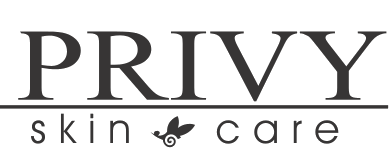What Is Hiding In Your Skin Care Products
When it comes to selecting skin care products, the list of concerns can feel overwhelming—price, brand reputation, skin tone compatibility, and effectiveness are just the beginning. But on top of all that, we must also consider safety. Isn’t that the FDA’s job? Surprisingly, the answer is no. The FDA does not regulate skin care products and lacks the authority to mandate recalls of harmful cosmetics. Furthermore, most marketing claims made by cosmetic companies go unchecked, allowing terms like “hypoallergenic” or “natural” to carry little to no actual significance. Most dermatologists agree that these descriptors often lack meaningful medical context.
According to the Environmental Working Group, “Aside from color additives and a handful of prohibited substances, cosmetics companies are free to use nearly any ingredient or raw material in their products without government oversight or approval (FDA 2005).” While the European Union has banned over 1,000 ingredients from cosmetics, the FDA has only restricted a minuscule number.
So, where do you begin? While it’s nearly impossible to eliminate all synthetic chemicals from your skincare routine, you can still take proactive steps to reduce the toxins you expose yourself to. Empower yourself with knowledge: conduct thorough research before making a purchase. Remember, you only have one body—treat it with care!
Additionally, the EWG’s Skin Deep Database is a valuable resource for investigating potentially harmful chemicals in your cosmetics and personal care products.
Feeling overwhelmed? Start small. Compile a list of ingredients you wish to avoid and gradually eliminate them from your products. Once you’ve made those adjustments, consider adding a few more ingredients to your list until you’re comfortable with the level of toxicity you’re willing to eliminate. Here are a few to get you started:
Fragrance: While fragrance might enhance the appeal of products from moisturizers to laundry detergents, do you really know what’s in it? Federal law doesn’t require companies to disclose the specific chemicals in their fragrance blends. Recent studies from EWG and the Campaign for Safe Cosmetics found an average of 14 undisclosed chemicals in 17 popular fragrance items, none listed on their labels. Fragrances can act as hormone disruptors and rank among the top five allergens globally, potentially causing allergies, dermatitis, respiratory issues, and reproductive system effects. Opt for fragrance-free alternatives wherever possible.
Hydroquinone: This skin-lightening agent can lead to a condition called ochronosis, characterized by blue-black lesions that, in severe cases, become permanent, caviar-sized bumps. Animal studies have also linked hydroquinone to tumor growth.
Parabens: Particularly Propyl-, Isopropyl-, Butyl-, and Isobutyl-parabens, these preservatives inhibit the growth of bacteria and mold in cosmetic products. However, parabens can mimic estrogen, which has been linked to an increased risk of breast cancer, as well as disrupting the endocrine system and causing reproductive and developmental issues. You’ll often find parabens in makeup, body washes, deodorants, shampoos, and facial cleansers.
What else can you do? If you experience an adverse reaction to a skin care or cosmetic product, don’t hesitate to take action:
•Contact your healthcare provider;
•Report the incident to the FDA’s Center for Food Safety and Applied Nutrition (CFSAN) Adverse Event Reporting System (CAERS) at 301-436-2405 or via email at CAERS@cfsan.fda.gov;
•File a complaint with the manufacturer.
At Privy Skin Care, I prioritize your safety and well-being by meticulously selecting our products. I’m here to help you reevaluate your skin care routine for better outcomes! Schedule your appointment today by calling us at 702.496.2066 or visiting us online at www.privyskincare.com.



